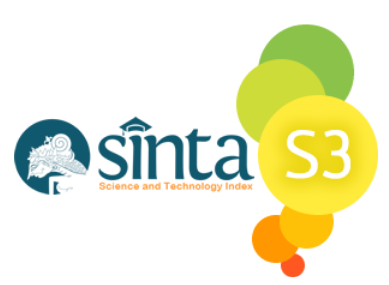THE EFFECT OF FLIPPED CLASSROOM MODEL USING TELEGRAM BOT IN TEACHING BASIC CHEMISTRY
Amirotul Muniroh, Rizdania Rizdania, Rasyidah Nur Aisyah
Erudio, Vol 9, No 2 (2022), pp. 225-233
Abstract
It is required for all educational components to use online learning during the COVID-19 pandemic. The flipped classroom model with social media can be an excellent way to implement the changes necessary for the modern educational environment, particularly Telegram. This study analyzed how a flipped classroom using a telegram bot for basic chemistry instruction fared during the COVID-19 outbreak. The research participants were 40 students from SMAN 1 Gondangwetan Pasuruan. They were split into experimental and control classes; each group consisted of twenty students. Using the questionnaire, also the data from the pre-test and post-test were gathered and analyzed. Data were examined using two average difference tests and descriptive quantitative percentages (Mann-Whitney test). The findings demonstrated that experimental classes improved students' cognitive learning outcomes. About 95% of the N-Gain scores were examined in the test group, compared to 70% in the control class. According to the Mann-Whitney test, the control and experiment classes are significantly different, which supported the finding with a significant value of 0.041<0.05. It has been demonstrated that the model enhances students' academic performance.
Full Text:
PDFDOI: https://doi.org/10.5281/zenodo.8081396
Refbacks
- There are currently no refbacks.
Copyright (c) 2022 Erudio Journal of Educational Innovation

This work is licensed under a Creative Commons Attribution 4.0 International License.












